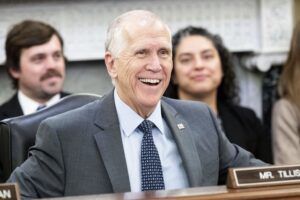A sweeping overhaul of U.S. foreign aid programs led by the Department of Government Efficiency (DOGE) under Elon Musk is drawing sharp criticism from many Christians, including Catholic scholar George Weigel, who warns that the reforms risk undoing two decades of life-saving progress in global health.
In a recent First Things article titled “Getting Foreign Aid Right”, Weigel, a senior fellow at the Ethics and Public Policy Center, takes aim at what he calls a “shock-and-awe” approach to aid reform that has disrupted critical programs like the President’s Emergency Plan for AIDS Relief (PEPFAR). Since its launch in 2003, PEPFAR has provided HIV/AIDS treatment and prevention services to millions in more than 50 countries.
Weigel notes that while some criticisms of U.S. aid policy—particularly the promotion of ideological agendas—are valid, the recent restructuring has led to the suspension of community health workers, delays in medicine delivery, and the halting of prevention programs. He warns that thousands of people could face new infections or even death due to the interruption of services.
“Programs like PEPFAR are not just bureaucratic legacy projects—they are instruments of moral responsibility and strategic influence,” Weigel writes, urging the Trump administration to bring in seasoned aid leaders like former USAID administrators Andrew Natsios and Mark Green to guide reform efforts.
Weigel also emphasizes the geopolitical stakes of foreign assistance. As China expands its global influence through initiatives like the Belt and Road Initiative, weakening America’s aid infrastructure could erode U.S. soft power, Weigel argues.
Rather than a wholesale teardown, he calls for targeted improvements that preserve what works and address inefficiencies without sacrificing lives or credibility abroad.
Read the full article here: Getting Foreign Aid Right






